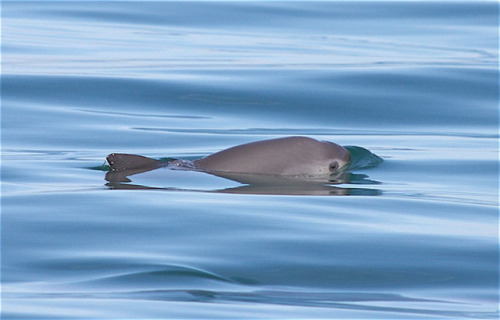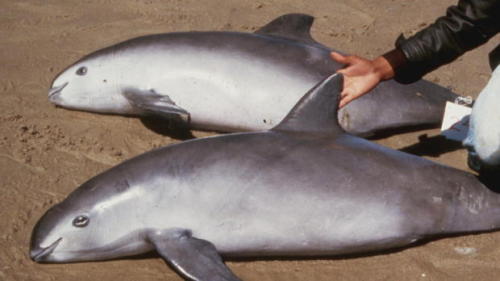#tatoaba
While the vaquita is not deliberately hunted by humans, its downfall has been the extensive fishing of the totoaba, a fish whose swim bladder is a delicacy in China. Gill nets used to catch totoaba have quite literally massacred the vaquita - over 80% of their population disappeared between 2008 and 2015.
Government efforts to preserve the species were perfunctory - “vaquita-safe” nets proved nowhere near as effective as the old gill nets, fishermen rioted when a related fishery was shut down for fear of it being used as a cover for tatoaba poaching (ironic, as that fishery used safer nets), and compensatory monthly checks to men losing their livelihood were meager, sometimes less than a man could make in a single day’s fishing. The export of tataobas was banned and a marine reserve established, but poaching and smuggling is rampant, and there is little incentive to stop it. A single tatoaba bladder can bring in $20 000, while the fine for being caught poaching is about $500. Even now, the controversial Sea Shepherd is one of the few ships patrolling for poachers, and they can do little but film and report them. In the meantime, dead vaquita continue to be pulled from the waters.
The latest estimates say there may be only 12 vaquita left in the world. If the vaquita goes extinct, it will be the first extinction of a marine mammal since the loss of the baijiin 2006.
Post link


